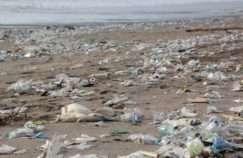In the four decades the global chemical industry has more than quadrupled in size, reaching $4 trillion in 2010 and projected to pass $6 trillion by 2020. The dramatic growth in chemicals production and use in developing countries and emerging economies makes global responses to those threats more important than ever. The current system for managing chemical risks, however, remains wholly inadequate.
CIEL has supported the drafting, negotiating, and analysis of international chemicals treaties to protect human health and the environment; however, the four principal international agreements in force – the Stockholm, Basel and Rotterdam Conventions and SAICM – are not adequate, even if fully implemented, to protect human health and the environment from the risks of dangerous chemicals. Only 22 hazardous chemicals – of possible thousands – are currently managed throughout their lifecycle at the global level.
The growing awareness that toxics risks affect not only the environment and human health but also human rights, affords both a new language and a new, powerful body of law to mobilize in the fight for stronger chemicals safeguards.
Building on our landmark report Paths to Global Chemical Safety: The 2020 Goal and Beyond, CIEL is cultivating governments and civil society organizations to advocate for a robust global chemicals regime that will protect people and the environment from ongoing and emerging toxic risks. As part of this work, CIEL advocates for a stronger global regime for chemicals management. This includes our close collaboration with UNEP on the development of legal systems in developing countries, engagement on the obligation of industrialized countries to provide adequate financing, and continued partnership with civil society organizations around the world.








